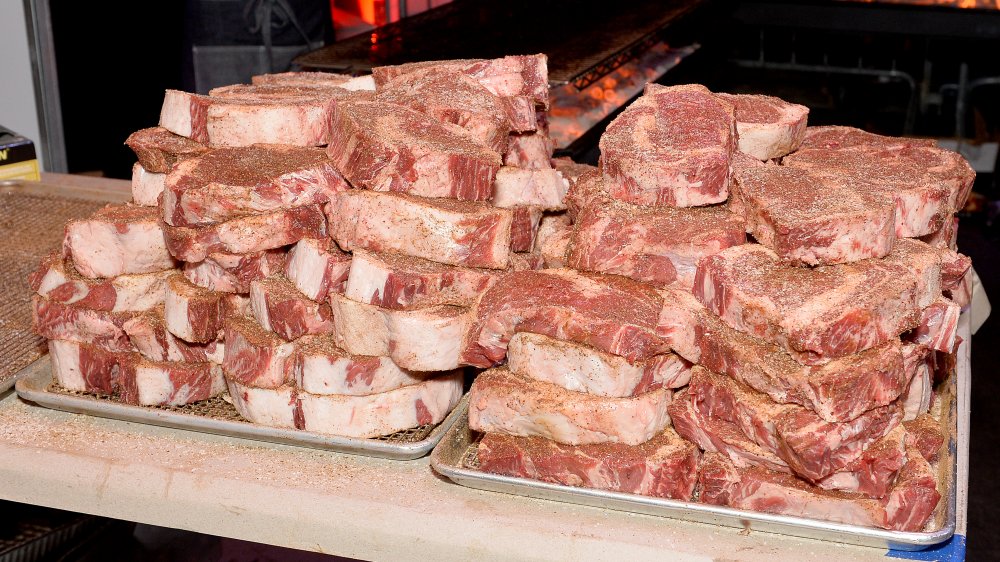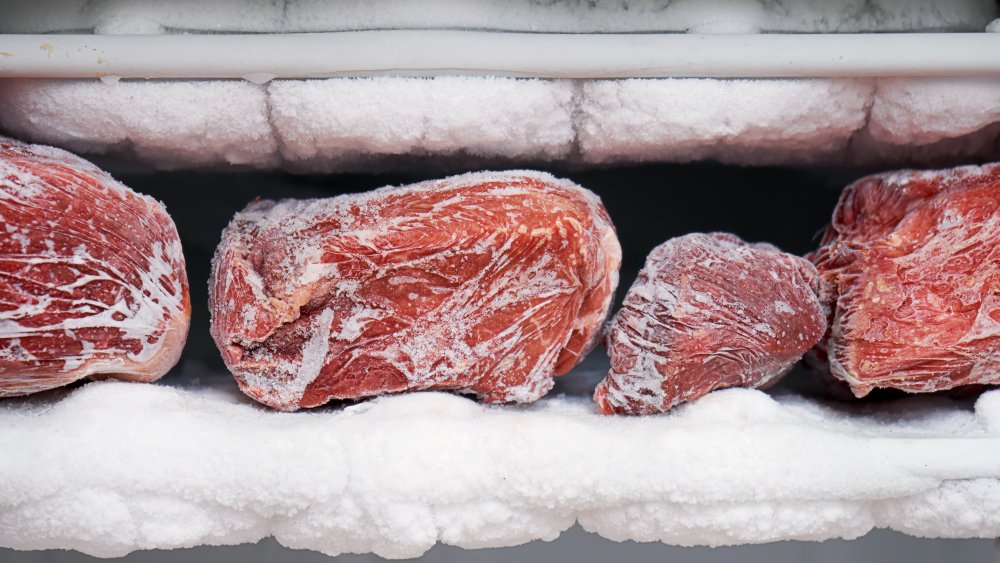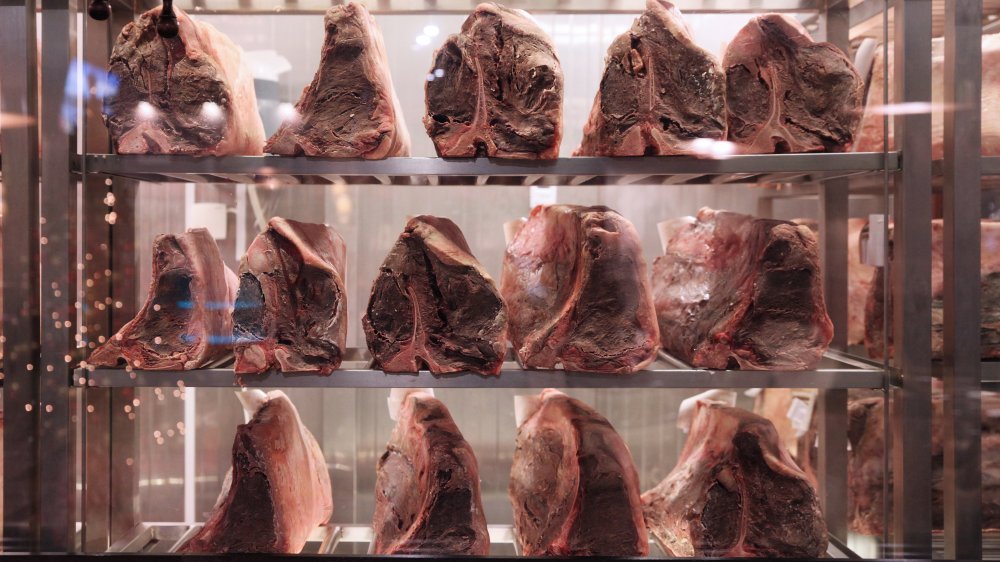The Real Reason Steakhouses Never Use Frozen Steak
When Steak School, a beef information hub created by the Australian beef company Stanbroke, releases an article titled "Is it a cardinal sin to freeze steak?" it might surprise the conscientious home cook. After all, we've all frozen a steak or two because of time constraints. The reason why we might want to think twice before freezing our steaks was given by LongHorn Steakhouse's chef Michael Senich to The Daily Meal. When one of our favorite steakhouses gives a suggestion, we pay attention.
According to Senich, freezing a steak could risk its quality by introducing ice crystals and freezer burn. Healthline describes freezer burn as the result of ice crystals forming in a foodstuff's inherent moisture. These crystals try to escape to the surface of the frozen food. The loss of moisture in the food can shrivel and toughen the product.
Unsurprisingly, some butchers agree with Senich. Meat The Butchers, a family-owned meat company in Southern California, refuses to freeze any of their products. Like Senich, they cite ice crystal formation as the big issue: "Ice crystals no matter the size can damage the cell walls inside of your protein and ruin its texture as well as destroy natural juices during the thawing process." Instead, they insist on age-drying their meats, so that the exact age and tenderness is known to all. That's part of the reason why steakhouses work hard to develop a good relationship with their suppliers. That way, they can have easy recourse to high-quality fresh steaks.
Freezing steak may have upsides
As much as certain meat lovers would probably want to impose a no-frozen-steak rule, it should really serve as a guideline that isn't entirely born out by the evidence. Researchers at Kansas State University found in 2016 that freezing strip loin and inside round steaks made the cooked product 10 percent more tender, as reported by Science Daily. These two cuts lost less moisture while freezing. Steak School itself admits that situations arise in which it makes more sense to freeze the steak than to immediately cook it. Especially when you've bought more meat than you needed. Furthermore, you can freeze steak without affecting its quality, provided you follow a few rules to avoid the freezer burn spurned by Micheal Senich. The method they recommend is to vacuum-pack it and freeze it quickly.
Similarly, both Bustle and Epicurious advocate for the case of cooking your steak directly from frozen, as opposed to thawing it first. The crux of the idea's that it gives the steak a longer cooking time because the temperature is so much lower. The longer cooking time means that it's harder to dry it out, which results in a consistently better-cooked steak. Both of these outlets also advocate for freezing your steak naked and not bagged. However, the audience of these advice articles are note steakhouses, but, of course, home cooks. As repeatedly emphasized, fresh meat is superior, but since you aren't charging restaurant prices, not using it is probably more permissible.
Cooking frozen steaks
Assuming, however, that you are a home cook who because of the hurly-burly of life needs to freeze some meat for a later meal, you might want to know how you should cook your frozen steak. Fortunately, Epicurious explains in a detailed manner how to grill these steaks. First, as always, you have to freeze your steak properly. In this case, they suggest keeping steaks laid flat in a freezer bag for no more than three-to-six months. When actually cooking, you arrange a two-zone grill, which is a grill with two differently heated areas. One side should have direct, high heat, which you will use to searing your steak until both sides are caramelized. The other grill area should have indirect, lower heat. After caramelizing your steak, continue cooking it in this cooler zone.
Guy Crosby, a Harvard professor of food chemistry and science editor for America's Test Kitchen, explained the science behind cooking frozen steak to Inverse in 2018. Essentially, the vast temperature difference between the steak's frozen inside and the heat of the skillet sears the exterior of the steak perfectly without drying its juicy interior. Cooking from frozen without thawing has arguably become the way to cook steaks.
The Inverse article ends with admitting that "fresher is better," as Senich said. However, they then turn around and say that "frozen is just as good." What they seem to mean is if you have the option, choose fresh meat. If not, don't worry about it.


